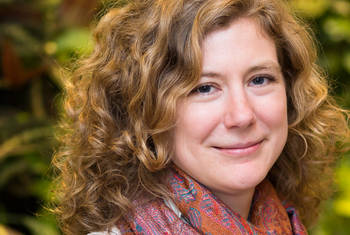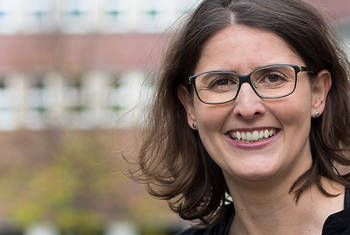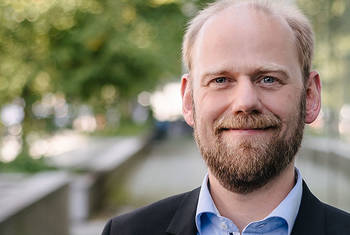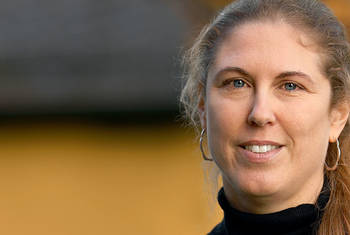Frank J. Müller What Can We Learn From Norway’s Experience With Open Educational Resources?
Frank J. Müller is Professor of Inclusive Education at the University of Bremen. Having previously worked as a teacher for ICT in inclusive settings, Müller has also worked in teacher training for inclusive education in Berlin. His main research interests include Inclusive Education, Design Thinking and Open Educational Resources. Müller is the co-founder and an editor of the open-access online magazine www.inklusion-online.net
Area of Research
Inklusive Open Educational Resources
since 2016
Junior Professor
University of Bremen (Universität Bremen) (more details)
Department of Educational Science
2011-2013
Wissenschaftlicher Mitarbeiter
Senatsverwaltung für Bildung, Jugend und Wissenschaft im Projektteam Inklusion in der Region Treptow-Köpenick
2013-2016
Teacher and Teacher Training
Grünauer Gemeinschaftsschule Berlin
since 2006
Co-Editor and Co-Founder
Open-Access Journal for Inclusion: Zeitschrift für Inklusion (http://www.inklusion-online.net).
2012
Ph.D.
University of Potsdam (Universität Potsdam)
Department of Humanities
2005
State Examination
Humboldt University of Berlin (Humboldt-Universität zu Berlin)
Department of Rehabilitation Science
- Open-Access Journal for Inclusion: Zeitschrift für Inklusion (http://www.inklusion-online.net).
- Deutsche Gesellschaft für Erziehungswissenschaften (since 2013)
- Bidok Deutschland e.V. (since 2006)
- Ph.D. Scholarship Heidehof Stiftung


University of Bremen (Universität Bremen)
Universität Bremen Bibliothekstraße 1 28359 Bremen, GermanyTop-performing, diverse, reform-minded, and singularly cooperative – that about sums up the University of Bremen. Around 23,000 people learn, teach, research, and work on its international campus. Their shared goal is to contribute to the advancement of society. With well over 100 degree programs, the range of subjects offered by the university is broad. As one of Europe’s leading research universities, it maintains close cooperation with universities and research institutes worldwide. The University of Bremen, together with seven partner institutions, will create a European university in the coming years. The EU Commission is funding the YUFE – Young Universities for the Future of Europe – network. Furthermore, the university is part of the regional U Bremen Research Alliance. The university’s competence and dynamism have attracted numerous companies to settle in the technology park surrounding the campus. This has created an important national location for innovation - with the University of Bremen at its heart. www.uni-bremen.de/en/
Map
How can we best implement digital learning in schools? In this video, FRANK J.MÜLLER argues that the Norwegian Digital Learning Arena’s (NDLA) work with Open Educational Resources offers a highly instructive case study. Interviewing professionals and companies working with NDLA as well as school book publishers who have opposed the platform since its introduction in 2006, Müller shows how Norway has dealt with questions around funding, software, sustainability and licensing. Underlining the centrality of openness to the success of the NDLA system, Müller’s work explains how other international educational systems can benefit from Norway’s experience.
LT Video Publication DOI: https://doi.org/10.21036/LTPUB10834
Opportunities and Challenges of State-Financed Open Educational Resources. The Norwegian Model – A Way to More Inclusion?
- Frank J. Müller
- Published in 2019









